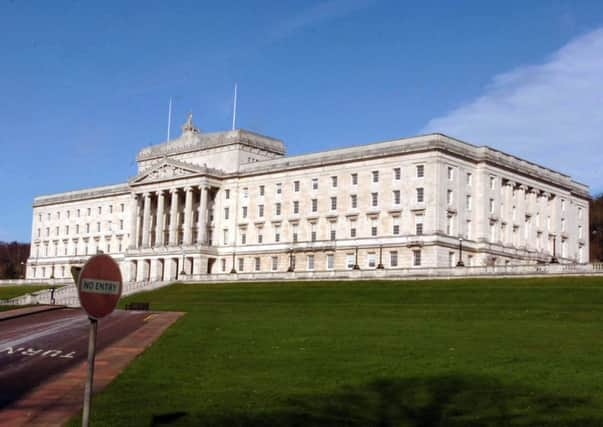NI civil servant signs political letter alongside Scottish and Welsh ministers complaining at pension changes


In a letter sent to UK Chief Secretary to the Treasury Liz Truss, officials from Scotland, Northern Ireland and Wales raised concerns over the process and the way in which the pensions are valued.
The letter was signed by Scotland’s Finance Secretary Derek Mackay, Welsh Minister for Finance and Trefnydd Rebecca Evans, and Sue Gray, the Permanent Secretary at Northern Ireland’s Department of Finance.
Advertisement
Hide AdAdvertisement
Hide AdFunding for the increase in employer pension contributions had been confirmed in a letter sent to Mr Mackay, Ms Evans and Ms Gray by Ms Truss in May.
In their letter, they responded: “We would like to begin by making clear that we fundamentally disagree with the way in which additional funding for the devolved administrations has been allocated.
“The key issue is the level of funding does not fully fund the costs associated with the changes. This is unacceptable and inconsistent with the statement of funding policy and the principles for allocating funding within the UK.
“We are also deeply concerned at the lack of transparency and engagement in relation to changes with significant public spending implications, which undermines and discredits the established UK public spending framework.”
Advertisement
Hide AdAdvertisement
Hide AdThe joint letter also indicated that officials had wished their concerns could have been discussed at a Finance Ministers’ Quadrilateral prior to the summer recess.
However, the letter also says they are hopeful a satisfactory resolution can be reached through “constructive engagement”, which they said should result in “equitable funding across the UK and greater transparency and certainty going forward in regards to funding issues”.
The letter adds: “We are particularly concerned about the impact on front-line services delivered by public sector bodies. We have each taken steps to provide additional funding to assist with the burden of these unexpected costs.
“This has reduced the funding available to invest in our own priorities and limited our flexibility to deal with in-year pressures, including Brexit preparedness.
Advertisement
Hide AdAdvertisement
Hide Ad“In essence, the UK Government’s actions have disadvantaged the devolved administrations.
“It is our hope that we can find a satisfactory resolution to this situation through constructive engagement. This should result in equitable funding across the UK and greater transparency and certainty going forward in regards to funding issues.
“If timely progress on resolving this issue is not made, we will pursue a more formal mechanism to resolve the situation by invoking the formal dispute resolution mechanism through the Joint Ministerial Committee.”
Northern Ireland has not had devolved ministers since 2017, after Stormont was brought down. Latterly, civil servants have often been taking decisions that would previously have been taken by politicians.